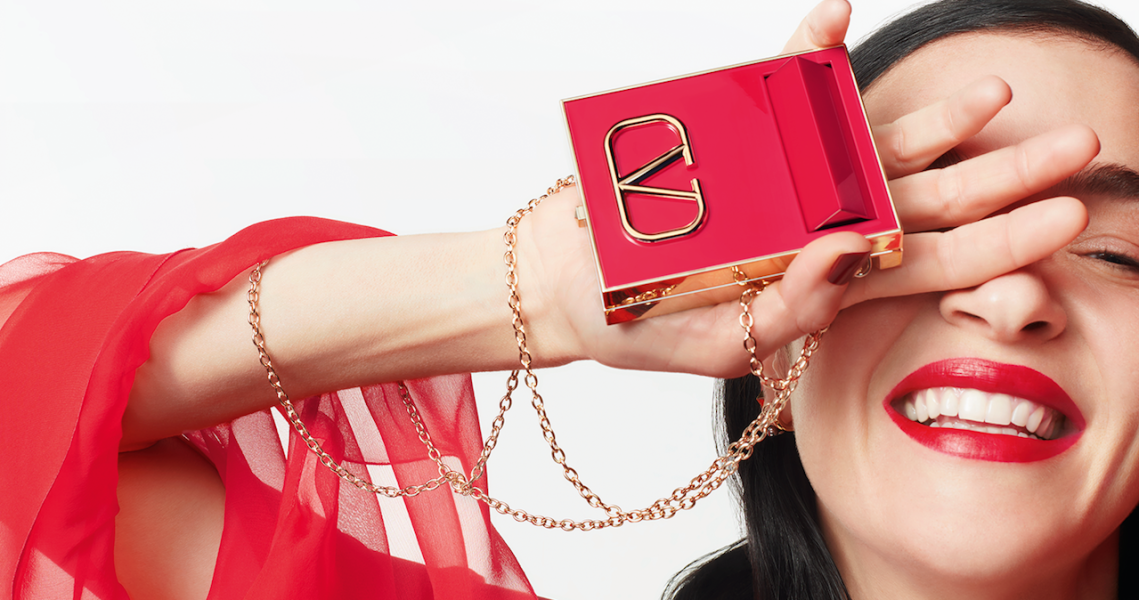Last week, Kering announced that it had bought 30% of Valentino with an option to buy the rest within the next five years. Meanwhile, Prada showed strong earnings but slow sales in the U.S. But that’s nothing compared to the current slump of retail sales in the U.K. Don’t forget to subscribe to the Glossy Podcast for interviews with fashion industry leaders and Week in Review episodes, and the Glossy Beauty Podcast for interviews from the beauty industry. –Danny Parisi, sr. fashion reporter
More consolidation in the luxury space
The consolidation of high luxury continues.
On the Glossy Week in Review podcast, Glossy editor-in-chief Jill Manoff and I have talked about how the big luxury conglomerates LVMH, Kering — and, to a lesser extent — Capri Holdings and Richemont dominate the luxury space. Independent luxury houses would be hard-pressed to rival the scale of brands like Louis Vuitton or Gucci.
Now, one of those few non-conglomerate brands, Valentino, is going to be subsumed. Kering announced on Thursday that it had reached a deal with Valentino’s parent company, the Qatari fund Mayhoola, to purchase 30% of Valentino.
The move comes with the option to take over 100% of the brand within five years, which Kering seems eager to do. Kering paid more than $1.8 billion for that 30% — a huge sum, but not quite as big as the $3.8 billion it dropped for the fragrance brand Creed last month.
Kering, clearly, is on a hot streak of acquisitions as it seeks to up its competition against LVMH. Last year, Kering made more than $20 billion in revenue, compared to LVMH’s more than $90 billion. Kering’s shares have declined slightly, around 3% in the last year, while LVMH’s have soared by nearly 30%.
Ad position: web_incontent_pos1
But big new acquisitions could be what Kering needs to close the gap between the two conglomerates. That will depend on whether it can develop Valentino the way it did Gucci or Saint Laurent.
Prada reports big profit jump, but slow sales in the U.S.
And on the topic of non-conglomerate luxury brands, on Thursday, Prada reported its earnings for the first half of 2023, showing a marked increase from the year before: Revenue was up 17% from 2022, and profits were up by 62%. The latter figure is sure to impress the company’s shareholders.
Sales were particularly strong in Asia for both Prada and its sister brand Miu Miu, but sales were relatively unimpressive in the Americas, where they fell by 1%.
British retail continues to slump
Ad position: web_incontent_pos2
Last week, I wrote about why brands are still betting on physical stores even as retail sales slow down across the world. Retail sales are always fluctuating and moments of slowed growth don’t always mean store ambitions should be abandoned. But brands in the U.K. have good reason to be concerned.
Even though retail sales are slowing in the U.S. and parts of Asia, the U.K. is being hit hardest. The Confederation of British Industry reported on Thursday that its balance of sales, a measurement that compares retail revenue from a year ago to now, was at -9 in June and fell to -25 in July. Next month is expected to hit -32, the lowest it’s been since the height of the pandemic, suggesting a particularly difficult time for British retailers.




